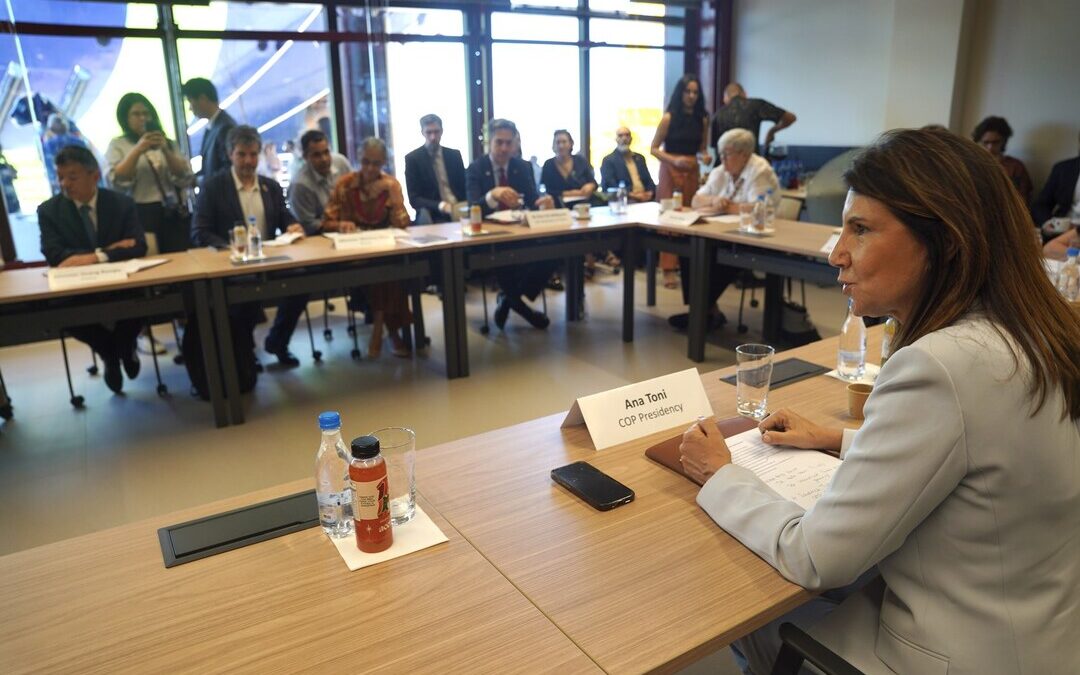Brazil, China and UK Lead Global Push to Curb Methane and Slow Climate Change
Global leaders at COP30 unveil new initiatives to cut methane emissions and accelerate action on climate change worldwide.
Leaders from Brazil, China and the United Kingdom on Sunday launched landmark initiatives to curb methane and other non-carbon dioxide greenhouse gases, signaling what they called a “turning point” in the global effort to slow climate change.
The three nations, supported by the COP30 Presidency, co-hosted a high-level Methane Summit attended by ministers and representatives from Barbados, France, Germany, the Climate and Clean Air Coalition and Bloomberg Philanthropies.
The summit aimed to advance immediate and coordinated action on short-lived climate pollutants, which warm the planet faster than carbon dioxide.
Ministers emphasized that cutting methane, nitrous oxide and hydrofluorocarbons is one of the fastest ways to limit global temperature rise to 1.5 degrees Celsius while improving public health and food security. They called for stronger cooperation, transparency and accountability across countries and industries.
Brazil and UK Launch New Accelerator
Brazil’s Environment Minister Marina Silva and UK Energy Secretary Ed Miliband announced the creation of the Super Pollutant Country Action Accelerator, a multi-year program under the CCAC.
The initiative will help 30 developing countries reduce methane and other super pollutants by 2030 through national “Super Pollutant Units” modeled on the Montreal Protocol’s Ozone Units.
The first seven countries—Brazil, Cambodia, Indonesia, Kazakhstan, Mexico, Nigeria and South Africa—will share an initial $25 million package.
The program aims to mobilize $150 million during its first phase to boost public health, agricultural resilience and economic growth.
“Short-lived greenhouse gases such as methane have a powerful impact on global warming,” Silva said. “Reducing their emissions gives us a chance to stay within 1.5°C and protect lives.”
UK Leads Global Oil and Gas Methane Pact
The United Kingdom also unveiled a Statement on Drastically Reducing Methane Emissions in the Global Fossil Fuel Sector, backed by Canada, France, Germany, Japan, Kazakhstan, Norway and the European Commission.
The agreement commits signatories to six key actions across the oil and gas value chain, including ending routine flaring and venting by 2030.
It also calls for improved measurement and verification, greater support for low- and middle-income producers and the creation of a panel to establish a near-zero methane marketplace by 2026.
“Cutting methane and other non-CO₂ gases is one of the fastest and most effective ways to slow global warming,” Miliband said. “The UK is working to turn ambition into action.”
Developing Nations Call for Equity and Urgency
Barbados Ambassador Liz Thompson warned that unchecked methane emissions threaten small island nations’ survival. Citing Hurricane Melissa’s $10 billion damage in Jamaica, she urged oil and gas companies to act.
“Reducing global methane emissions is a matter of survival, social stability and economic sustainability,” Thompson said. She added that COP31 should advance discussions toward a legally binding methane agreement.
China’s Ecology Minister Huang Runqiu said controlling methane and other non-CO₂ gases is vital to global climate efforts. “Climate change is a global challenge, and addressing it requires concerted efforts from the entire world,” he said.
COP30 CEO Ana Toni added that methane reduction offers “the fastest results” to slow warming. She invited delegates to join methane-focused initiatives at COP30, including a ministerial roundtable.
A Step Toward Pulling the Climate Emergency Brake
Together, the announcements mark a decisive shift toward coordinated global action to tackle “the other half” of climate change. Leaders said they aim to integrate methane reduction into national and global systems for trade, development and climate policy.
“Lack of time is our biggest challenge,” Toni said. “But methane reduction offers the most immediate impact. It’s time to act together.”
By aligning national strategies, establishing fairer markets, and strengthening regulations, countries at the summit signaled intent to turn pledges into tangible progress—pulling, as Silva put it, “the climate emergency brake.”
Also Read:
Nestle Exits From Global Dairy Methane Pact Amid Climate Action Concerns
Nirmal Menon
Related posts

Subscribe
Error: Contact form not found.


